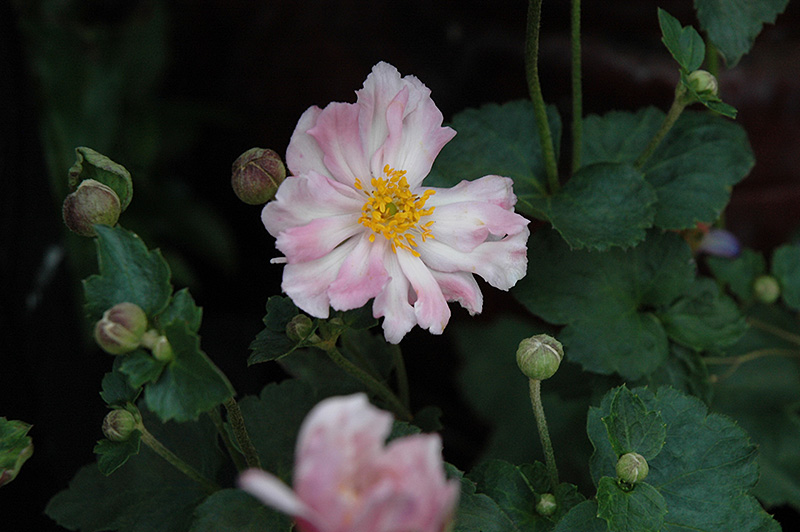Queen Charlotte Anemone
Anemone x hybrida 'Queen Charlotte'
Plant Height: 18 inches
Flower Height: 3 feet
Spread: 18 inches
Sunlight:
![]()
![]()
Hardiness Zone: 4
Description:
Soft-pink semi-double buttercup flowers rise high above dark green foliage; windflowers are perfect for naturalizing, swaying gently in the wind and blooming at the end of the season
Ornamental Features
Queen Charlotte Anemone is smothered in stunning semi-double shell pink buttercup flowers with yellow eyes at the ends of the stems from late summer to late fall. The flowers are excellent for cutting. Its lobed leaves remain dark green in colour throughout the season.
Landscape Attributes
Queen Charlotte Anemone is a dense herbaceous perennial with an upright spreading habit of growth. Its relatively fine texture sets it apart from other garden plants with less refined foliage.
This is a relatively low maintenance plant, and is best cleaned up in early spring before it resumes active growth for the season. It is a good choice for attracting bees and butterflies to your yard. It has no significant negative characteristics.
Queen Charlotte Anemone is recommended for the following landscape applications;
- Mass Planting
- General Garden Use
Planting & Growing
Queen Charlotte Anemone will grow to be about 18 inches tall at maturity extending to 3 feet tall with the flowers, with a spread of 18 inches. Its foliage tends to remain dense right to the ground, not requiring facer plants in front. It grows at a medium rate, and under ideal conditions can be expected to live for approximately 10 years. As an herbaceous perennial, this plant will usually die back to the crown each winter, and will regrow from the base each spring. Be careful not to disturb the crown in late winter when it may not be readily seen!
This plant does best in full sun to partial shade. It prefers to grow in average to moist conditions, and shouldn't be allowed to dry out. It is not particular as to soil type or pH. It is somewhat tolerant of urban pollution. This particular variety is an interspecific hybrid. It can be propagated by division; however, as a cultivated variety, be aware that it may be subject to certain restrictions or prohibitions on propagation.

